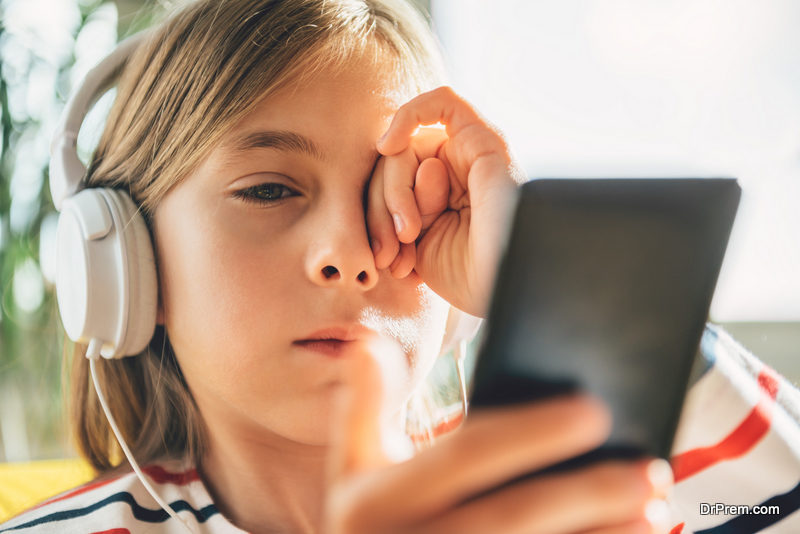Technology has made social interaction easier as well as tougher. Easier in the sense you do not have to wait for hours or days to get a suitable opportunity to interact with your friends and other loved ones. Tougher in the sense that the tech-driven social interaction is eroding the human touch to some extent. The impact of technology on social interaction is varied. It needs to be assessed from different angles.
Despite the longing to meet a friend in person, you remain satisfied with video and textual interactions. Or is it the other way round – the longing to meet a person is dwindling? Life in the digital age is evolving in a peculiar manner and so are human relationships.
So how should we view the impact of technology on social interaction patterns? Have we improved our social skills? Have we succeeded in developing healthy and meaningful relationships with a definite value system? Is the zeal of finding a friend still existent? Or are we getting tired of too much social media exposure? The opinions are divided.
Television – the initial impact of technology on social interaction:
 Television impacted our social interaction pattern a lot before the invasion of digital media. TV, once a popular medium of entertainment, generated mixed reviews. Some researchers have felt limited watching of wholesome programs can improve our relationships with family and friends.
Television impacted our social interaction pattern a lot before the invasion of digital media. TV, once a popular medium of entertainment, generated mixed reviews. Some researchers have felt limited watching of wholesome programs can improve our relationships with family and friends.
Another group believes television viewing led to a fall in the social values as people preferred locking themselves inside the homes instead of stepping outdoors for direct social interaction. Television, by and large, has been a passive medium that helped little in stimulating social skills and thoughts. So where is the meaningful interaction while viewing? Of course, there are educative programs adding value to your life, but unless you get to interact, to what extent the learning can be impactful?
On the other hand, television viewing has the potential of inducing some negative qualities like:
- Too much exposure to sexual content may increase the chances of teen pregnancy.
- Viewing violent actions, sex and other malicious content may make people prone to mimicking those actions.
This situation underwent a vast change with the massive penetration of the internet in our daily lives. People can now view, read and listen to any content to their wish. They can interact with people of their choice and according to their wish.
Is it that social interaction pattern has changed for better?
Life in the digital age is different. None can abandon digital media, given life’s changing situations and demands. As mankind evolved from Stone Age, the present era is also evolving and so are the social interaction patterns and skills.
Branding the screen-glued baby boomers and Gen X as antisocial may not be right. Why can’t we view this as a different way of socialization? This is voiced by a counselor of Los Angeles and the author of Closer Together, Further Apart: The Effect of Technology and the Internet on Parenting, Work and Relationships.
To him, digital social media is not a bad thing as long as you accept the responsibility for the actions. Well, this holds true in off line socializing as well. What about the number of ways these digital platforms have shown us to build human relationships? It is easy to join forums, create communities and express our needs and ideas.
Isn’t it a great impact of technology on social interaction? Decades back, we couldn’t dream of such a unique way of social interaction with a strong potential to grow universally, breaking all barriers.
Research says technology in reality helps in strengthening relationships:
Findings of some studies point to the above-mentioned fact. It is not that people active in social media are always in the hiding mode or avoid person-to-person interactions. Some of the positive impacts of technology on social interaction can be summed up as follows:
More online interactions increase the chances of in-person meets:
 This is true when both the parties get interested to know each other better. Active users of digital spaces are the biggest users of public spaces too! Some relationships may be short lived while some may be long lasting. This is common in offline social interactions as well.
This is true when both the parties get interested to know each other better. Active users of digital spaces are the biggest users of public spaces too! Some relationships may be short lived while some may be long lasting. This is common in offline social interactions as well.
Technology fosters closer relationships:
Users of social media and cell phones can maintain closer ties as they find easy to confide and discuss important issues.
Technology can make relationships long lasting:
 Those unable to meet in person owing to distance and other factors can maintain contact with the help of advanced technology. At least it prevents relationships from going dormant.
Those unable to meet in person owing to distance and other factors can maintain contact with the help of advanced technology. At least it prevents relationships from going dormant.
Creates more awareness of diversity:
Before technology took on our lives, we were used to common beliefs shared and expressed within a small network. Technology has helped us to expand our views and perspectives. We come across different opinions and beliefs of a broader community, often helping us in enhancing our thoughts and beliefs.
Enlivening teen spirit:
 This generation is most glued to online tech. They are most active in social media. A survey finds, a mere 25% teens surveyed spend time on in-person interaction beyond school hours every day. 55% of teens do not fail to text their friends every day. Despite growing reports of cyber bullying, 80% feel more connected to friends through social media and 70% feel more aligned to their friends’ feelings.
This generation is most glued to online tech. They are most active in social media. A survey finds, a mere 25% teens surveyed spend time on in-person interaction beyond school hours every day. 55% of teens do not fail to text their friends every day. Despite growing reports of cyber bullying, 80% feel more connected to friends through social media and 70% feel more aligned to their friends’ feelings.
Assessing the negative impact of technology on social interaction:
To start with impacting human relationships, there are three areas where the impact of technology may be harmful:
Affecting intimacy:
 Intimacy in a relation itself is challenging and technology can often add to the stress. You won’t be happy if you find your partner getting frequently distracted by messages and calls over phones while you are out for a date.
Intimacy in a relation itself is challenging and technology can often add to the stress. You won’t be happy if you find your partner getting frequently distracted by messages and calls over phones while you are out for a date.
A 2014 poll by Pew Research Center found 1of 4 people in a relationship complained of the above fact. Too much screen attention led to arguments in almost 1 of 10 couples. Sexting or messaging sexual content has seen a rise among adults since 2012.
Losing focus:
Technological advancements occupy a significant portion of our waking time. People lose focus owing to frequent distractions generated by mobile devices. This has been a common feature which can be termed as a sort of addiction. When disconnected from technology, heavy users reported a heightened level of anxiety than the moderate users.
Depression:
 Heavy users of social media also become vulnerable to depression. A newer study from the University of Pittsburgh’s School of Medicine after examining depression rates in younger adults found significantly higher chances of depression among those spending more time on social media. The report has also linked social media use with mood decline, sense of well being and satisfaction in life.
Heavy users of social media also become vulnerable to depression. A newer study from the University of Pittsburgh’s School of Medicine after examining depression rates in younger adults found significantly higher chances of depression among those spending more time on social media. The report has also linked social media use with mood decline, sense of well being and satisfaction in life.
To what extent technology has improved our social skills?
A poll conducted with Facebook followers generated interesting results on the impact of technology on social interaction:
Meaningless out of the context conversations:
 This is one of the reactions posted by the followers. Many people find it difficult to detect the tone of the conversation. How to judge whether a particular comment is funny, sarcastic or serious? Miscommunication and misunderstandings are bound to happen putting your social skills at test.
This is one of the reactions posted by the followers. Many people find it difficult to detect the tone of the conversation. How to judge whether a particular comment is funny, sarcastic or serious? Miscommunication and misunderstandings are bound to happen putting your social skills at test.
Online interactions fall short of empathy:
Can few words of expressing compassion and empathy replace the human touch and presence? This part is badly missing in social interactions.
Overloading of tech leads to cocooning:
 A major impact of technology on social interaction has been observed with the growing number of tech cocoons. People tend to detach themselves from the physical world owing to over addiction of technology. This creates another sort of social isolation that can cripple one’s normal life.
A major impact of technology on social interaction has been observed with the growing number of tech cocoons. People tend to detach themselves from the physical world owing to over addiction of technology. This creates another sort of social isolation that can cripple one’s normal life.




